Today we are taking a look at the Sabrent Rocket NVMe 512GB SSD. This is a mainstream drive from Sabrent featuring PCIe 3.0 x4 connectivity, the Phison E12S controller, a DRAM cache, and TLC NAND. This is the second in a series of Sabrent drives that we are going to be reviewing at the 500GB capacity point. The first drive tested was the Rocket Q 500GB, a more value-oriented QLC drive.
Rocket NVMe 512GB Overview
The Rocket NVMe 512GB comes in a single-sided M.2 2280 (80mm) form factor.
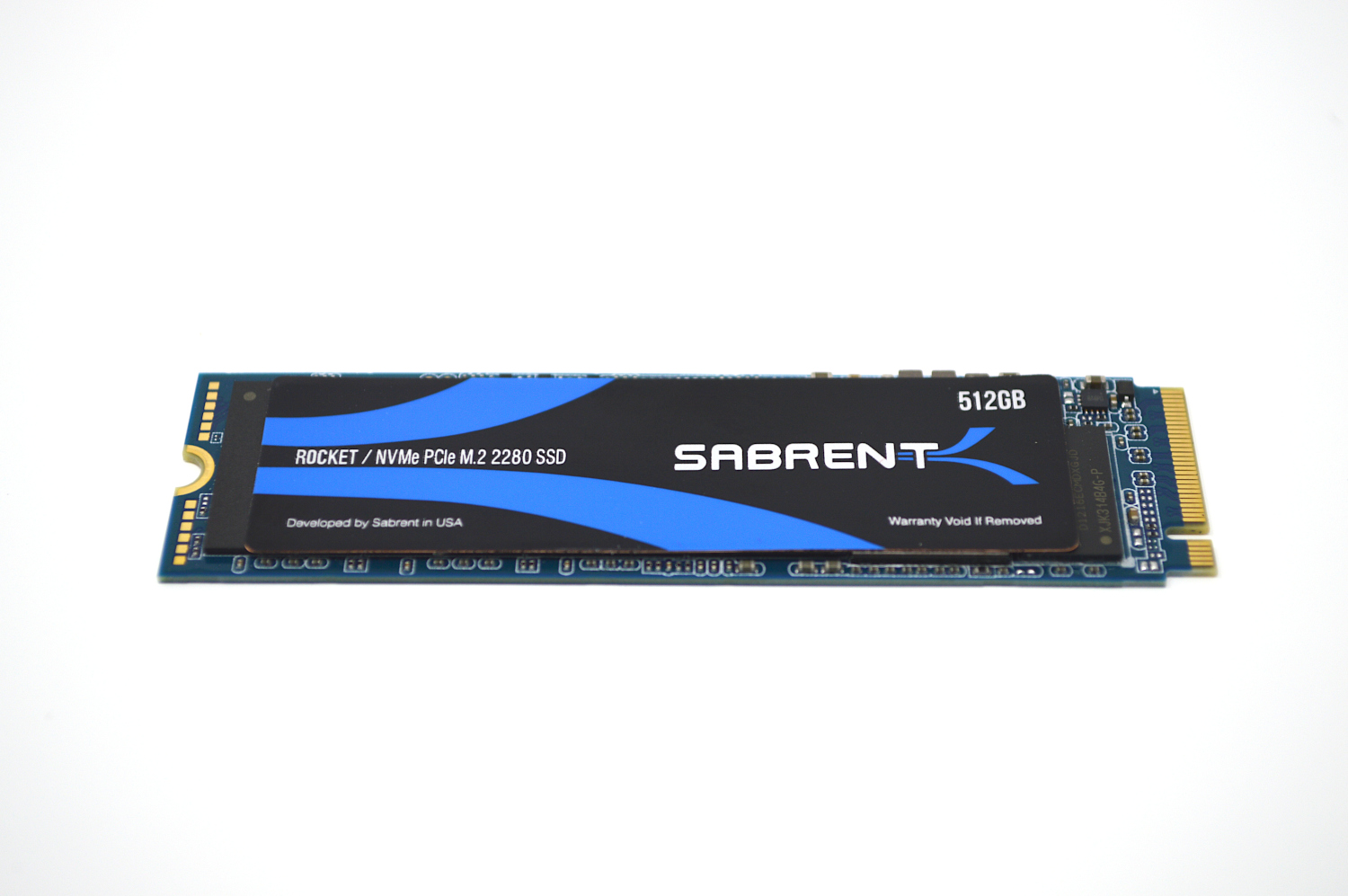
Hidden beneath the drive label is a thin copper heat spreader to keep the drive nice and cool.
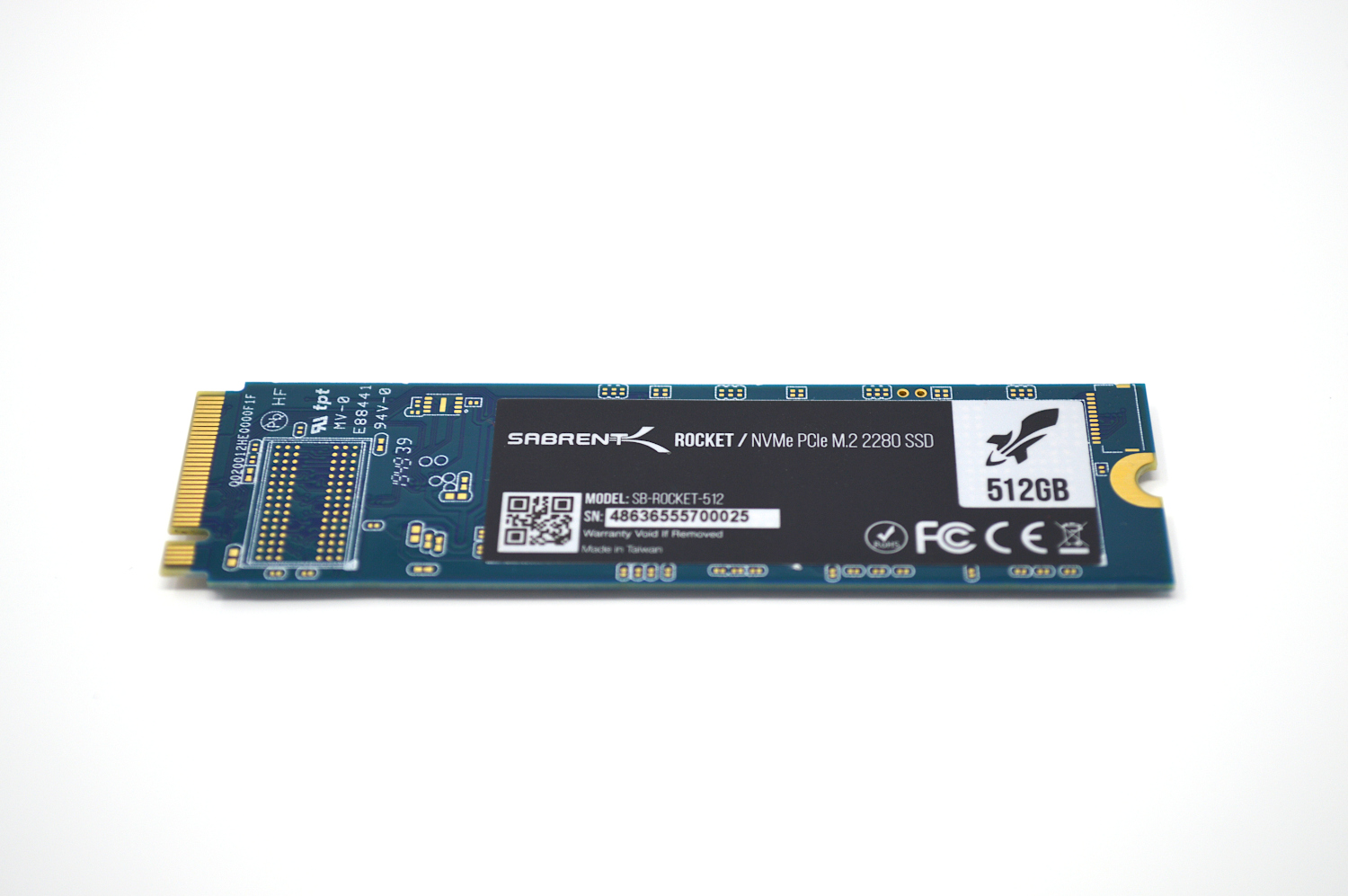
The back has a label with additional product information, but nothing mounted on the PCB. As these modules are not intended for servers with sync writes, there is no power loss protection (PLP.) You can read a bit more about why PLP is important in some server workloads in our piece What is the ZFS ZIL SLOG and what makes a good one. That looks at a specific case but has a few diagrams and an explanation around what goes on with these drives when they do and do not have PLP.
Sabrent Rocket Q Software Bundle
The Rocket NVMe 512GB includes three pieces of software available for download.
Sabrent Sector Size Converter
This utility does what its name implies and lets you convert the drive’s sector size between 512e and 4Kn.
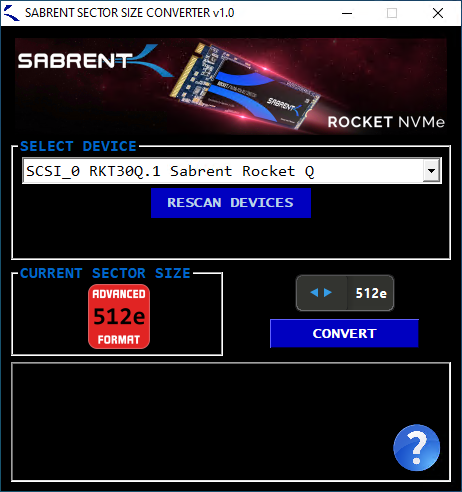
While interesting, most users will never have a need for it.
Sabrent Control Panel
Another utility Sabrent has is its Control Panel.
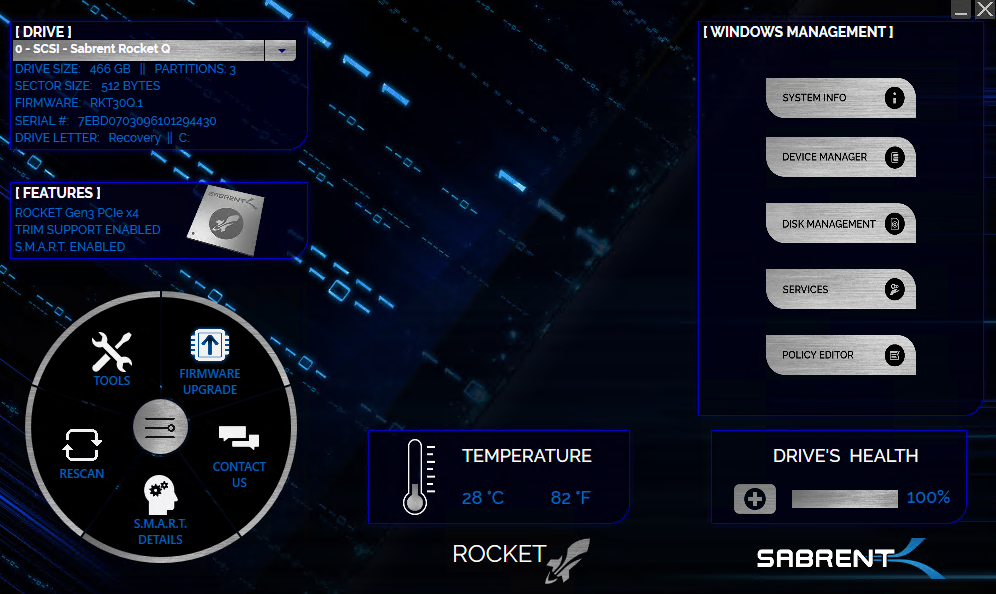
This utility gives access to some very basic information from the SSD as well as provides a mechanism for firmware updates.
Acronis True Image
Drive cloning and backup software. For consumer installations, software like this can make migrating to a new SSD a much easier process.
Sabrent Rocket NVMe Specs
The Rocket NVMe line of TLC based SSDs has 256GB, 512GB, 1TB, 2TB, and 4TB capacities available.
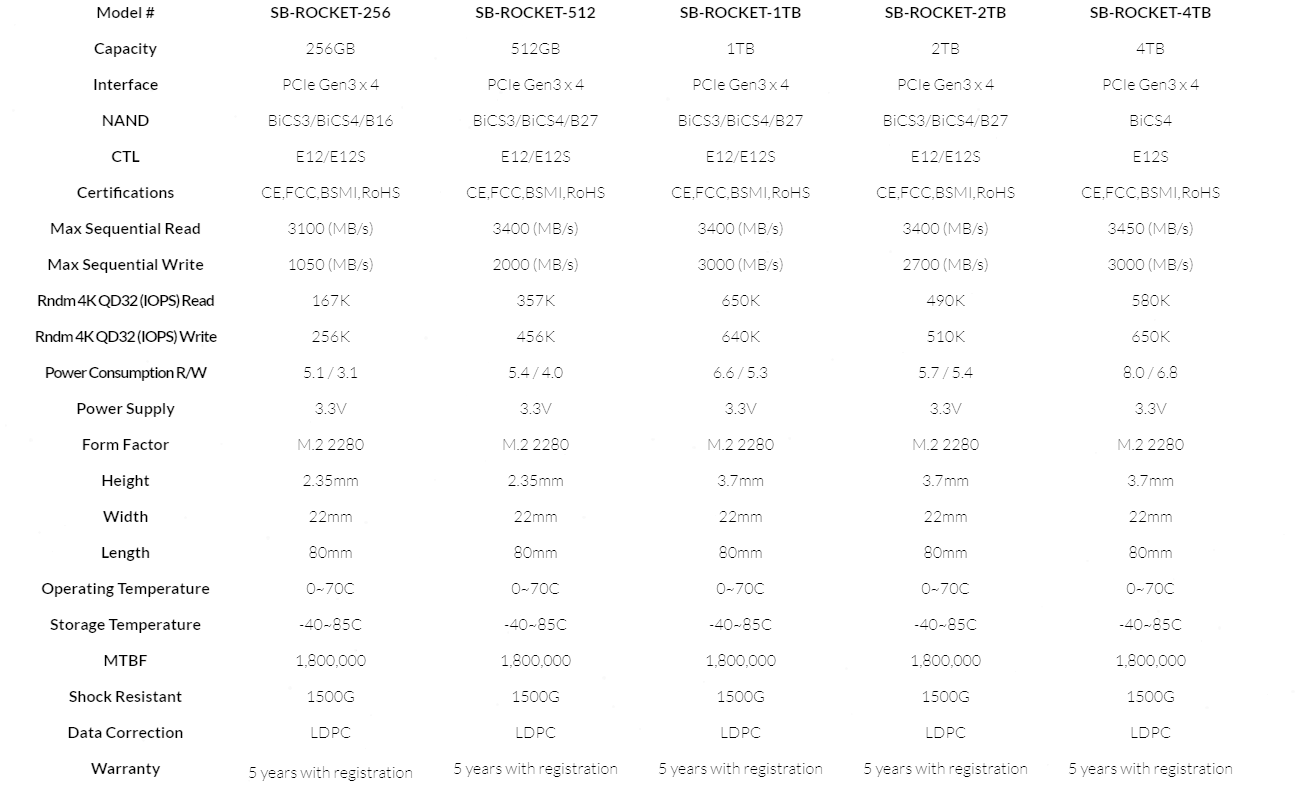
Since we are looking at one of the smaller drives in the line, performance and endurance will naturally be on the lower end due to how controller channels are populated. The advertised specs are still very good.
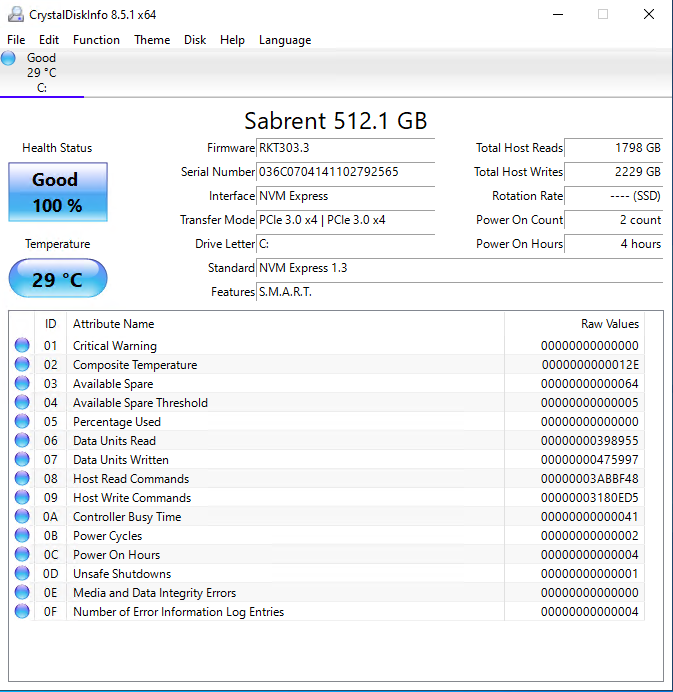
CrystalDiskInfo can give us some basic information about the SSD, and confirms we are operating at PCIe 3.0 x4 speeds using NVMe 1.3.
Test System Configuration
We are using the following configuration for this test:
- Motherboard: ASUS PRIME X570-P
- CPU: AMD Ryzen 5 3600 (6C/12T)
- RAM: 2x 16GB DDR4 3200 UDIMMs
Our testing uses the Rocket NVMe 512GB as the boot drive for the system, installed in the M.2_1 slot on the motherboard. The drive is filled to 85% capacity with data and then some is deleted, leaving around 60% used space on the volume.
Next, we are going to get into our performance testing.

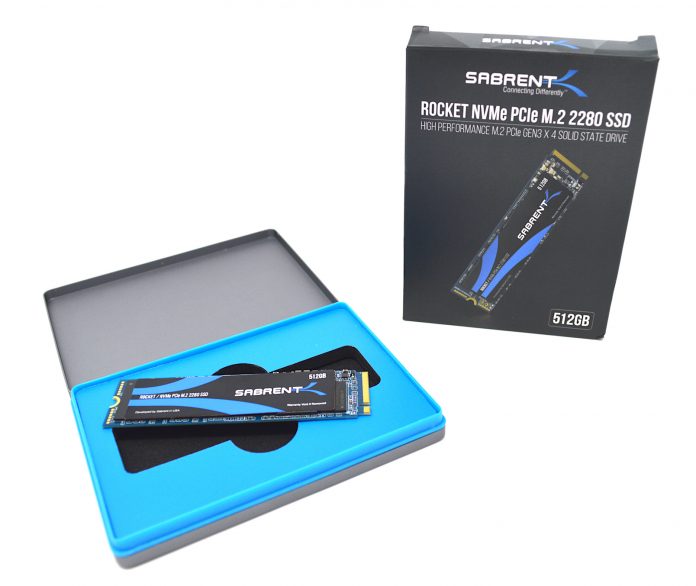
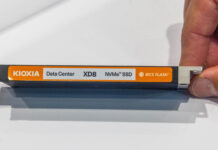
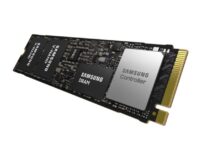
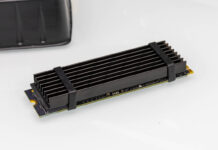
Nice to see you put a few words about power loss protection (PLP) and sync writes.
A subject that need more attention from reviewers in general.
Especially when they review drives which actually have PLP but DON’T squeze the manufactorer to provide the size of PLP backed cache, which they rarely provide!??
If the cache is low, the PLP it’s worthless and nothing more than a cheap marketing trick, that the reviewer should be wise enough to see. A litte off-topic I know. A good example is Micron’s 5300 Pro and Seagate IronWolf 110. None of them will reveal the chache size!
I bought the 1TB version of this in July 2019 from Amazon UK for £105 ($129) and it’s superb value at that price. Excellent performance and even a 5-year warranty if you register the drive online. Will certainly consider their PCIe 4.0 variant when I get my next PC (likely to be a Zen 4 machine in 2022) – hopefully the PCIe 4.0 Rocket price will come down to something a little bit more sensible by then!